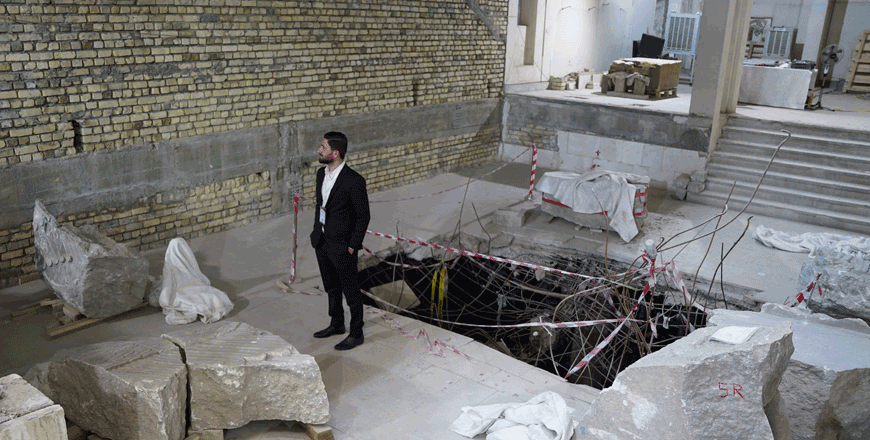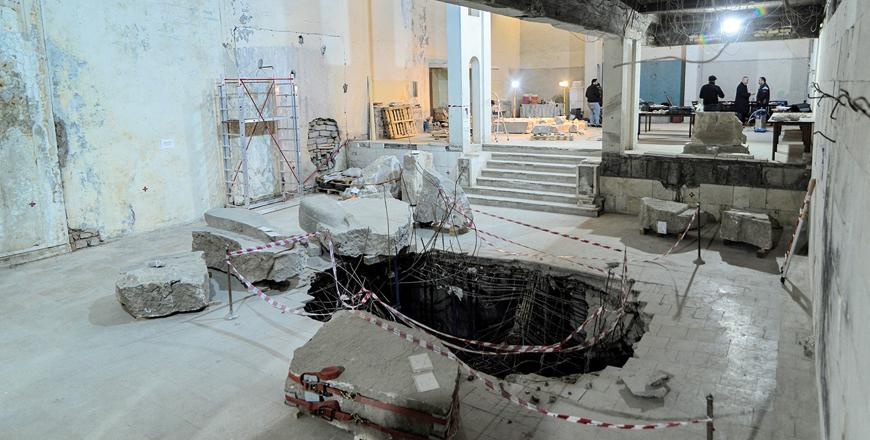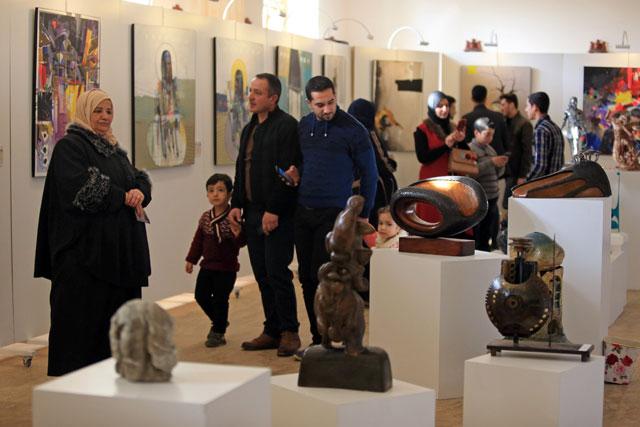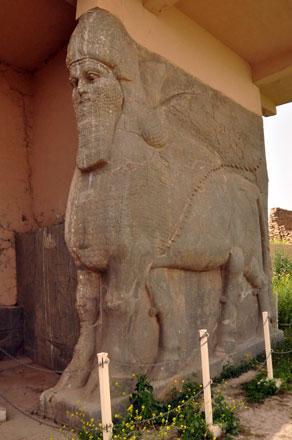You are here
Iraqi museum damaged by Daesh works towards reopening
By AFP - May 11,2023 - Last updated at May 11,2023

A man looks at broken artifacts at the Mosul Museum in Iraq’s northern city, on Thursday (AFP photo)
MOSUL, Iraq — Iraqi officials on Thursday said Mosul’s once-celebrated museum had entered the final stages of restorations ahead of a planned 2026 reopening after being closed to the public for 20 years.
The museum closed its doors in 2003, amid the chaos following the US-led invasion of Iraq, and was later ransacked by Daesh group terrorists after they seized the city in 2014.
“We are celebrating today, in the city of two springs, the launch of the Mosul Museum’s rehabilitation project,” the director of Iraq’s antiquities authority, Laith Majid, said at a press conference.
“This museum, an icon of museums in Iraq, was targeted by a blind barbarian assault,” Majid said, referring to the destruction by Daesh.
The militants used sledgehammers and power tools to deface ancient statues and pre-Islamic treasures housed in the museum, releasing an infamous video showing the destruction in 2015.
A gaping hole remains in the floor of the museum’s famed Assyrian gallery, caused by a bomb explosion.
“Part of this cavity will be preserved, as a witness throughout history to what has been perpetrated,” said Khair Al Din Ahmed Nasser, head of antiquities in Nineveh province, of which Mosul is the capital.
A new display was inaugurated, showcasing the museum’s history, collection and current restoration plans, as part of efforts supported by France’s Louvre Museum, the Smithsonian Institute and the World Monument Fund.
It comes within the “second and final phase” of the “total reconstruction and rehabilitation of the museum building” and should be completed within two or three years, said Nasser.
Among the pieces defaced by Daesh and under restoration at the museum are treasures from the ancient Assyrian site of Nimrud, including a winged lion, two imposing “lamassu” — winged bulls with human heads — and the throne base of the ninth century BC King Ashurnasirpal II.
“Out of five works, there are three that are extremely advanced,” said Barbara Couturaud from the Louvre.
The artefacts are being revived with financing from the International Alliance for the Protection of Cultural Heritage in Conflict Areas.
“The pieces have been identified... now they have to be assembled. These are sculptures that weigh several tonnes, requiring extremely complicated handling,” she said, adding she hoped they would be ready for the planned full reopening in summer 2026.
Related Articles
By Tony Gamal-Gabriel and Mohammed SalimAgence France-PresseMOSUL, Iraq — Left in ruins by extremists, Iraq’s once-celebrated Mosul museum a
MOSUL, Iraq — A raven perched on the shoulder of a woman with flaming hair is Iraqi artist Marwan Fathi's symbol for the terrible
PARIS — The city of Mosul is intertwined with human history, tracing its roots to 4,400 years ago when civilisation rose in fabled, fertile

















